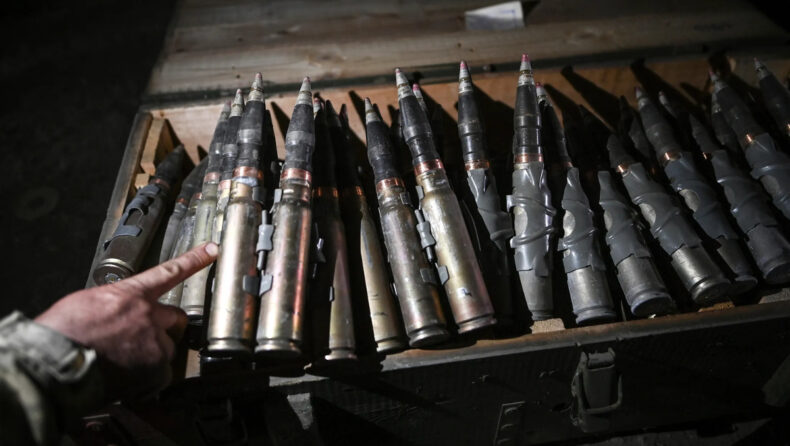In a shocking revelation, it has come to light that a secret arms deal between Pakistan and the United States played a pivotal role in securing a controversial bailout from the International Monetary Fund (IMF). Leaked documents obtained by The Intercept expose the clandestine transaction, shedding light on the intricate web of financial and political maneuvers that often remain hidden from the public eye. This covert deal not only raises questions about international relations but also has profound implications for Pakistan’s political landscape and democracy.
Table of Contents
A Controversial Bailout Amidst Protests
The IMF bailout for Pakistan came with a steep price—harsh structural policy reforms that triggered a wave of protests across the nation. Citizens took to the streets in response to the austerity measures, leading to major strikes and demonstrations. This unrest added another layer to an already tumultuous political crisis that had been brewing in Pakistan for over a year.

The Ouster of Imran Khan
In April 2022, with the encouragement of the United States, the Pakistani military orchestrated a no-confidence vote that resulted in the removal of Prime Minister Imran Khan. The State Department had privately expressed dissatisfaction with Pakistan’s perceived neutrality in the Ukraine conflict under Khan’s leadership. They conveyed a stark ultimatum: Khan’s ouster would be met with forgiveness, while his retention of power would yield dire consequences.
Following Khan’s removal, Pakistan swiftly aligned itself with the U.S. and its allies in the Ukraine conflict. This alignment, which earned Pakistan the goodwill of the U.S., was later repaid with an IMF loan. This loan not only averted an impending economic catastrophe but also allowed the new Pakistani government to indefinitely postpone elections.
Pakistan’s Role in the Ukraine Conflict
What adds another layer of complexity to this covert deal is Pakistan’s involvement in supplying arms to Ukraine. Pakistan is known for its production capabilities when it comes to basic munitions, a critical resource during times of conflict. Open-source reports have hinted at the presence of Pakistani-produced munitions in Ukraine, though both the U.S. and Pakistan have remained tight-lipped about this arrangement.
Leaked records detailing arms transactions were provided by a source within the Pakistani military. These documents detail munitions sales agreements between the U.S. and Pakistan spanning from the summer of 2022 to the spring of 2024.
The Money Trail and Brokerage
Global Military Products, a subsidiary of Global Ordnance, emerged as a key player in brokering these arms deals. Global Ordnance, a controversial arms dealer, was recently the subject of scrutiny due to its associations with questionable figures in Ukraine. Documents outlining the financial aspects and negotiations with U.S. officials include contracts, licensing agreements, and requisition documents related to U.S.-brokered deals for Pakistani military weapons destined for Ukraine.
IMF Bailout Secured Through Arms Sales
The economic capital and political goodwill generated by these secret arms sales played a pivotal role in securing the IMF bailout. The State Department, aware of the undisclosed weapons deal, took the IMF into confidence, allowing Pakistan to bridge the financing gap required by the IMF. It essentially saved Pakistan from a potential economic meltdown, enabling the military government to delay elections and intensify its crackdown on dissenters.
International Denials and Contradictions
The revelation of this covert arms deal has sparked international scrutiny and denials. While the State Department denied its role in procuring the loan, Maryland Democratic Senator Chris Van Hollen contradicted this claim, asserting that the U.S. was instrumental in securing the IMF bailout due to Pakistan’s dire economic situation.
The IMF, too, denied external pressure but refrained from commenting on whether it was informed about the arms deal. Global Ordnance, the firm implicated in the arms deal, remained silent on the matter.

The Future of Pakistani Democracy
As Pakistan grapples with IMF-imposed austerity measures and a political landscape reshaped by Imran Khan’s ouster, questions loom about the future of Pakistani democracy. The country’s new military leaders have made grand promises of foreign economic support, particularly from Gulf nations. However, evidence of these pledges materializing remains scarce.
The absence of substantial foreign support has left Pakistan’s military regime heavily reliant on the IMF, the U.S., and the secret production of munitions for the Ukraine conflict. The consequences of this covert deal extend far beyond financial matters, casting a shadow over Pakistan’s political stability and democratic prospects.
The revelation of a secret arms deal between Pakistan and the United States, with the purpose of securing an IMF bailout, has unveiled a complex web of international maneuvering. While the financial implications are significant, the political consequences are equally profound. Pakistan’s democracy now stands at a crossroads, with uncertainty looming over its future amidst a backdrop of economic challenges and covert dealings.
Read More: Protests and Perseverance of the Anganwadi Workers













